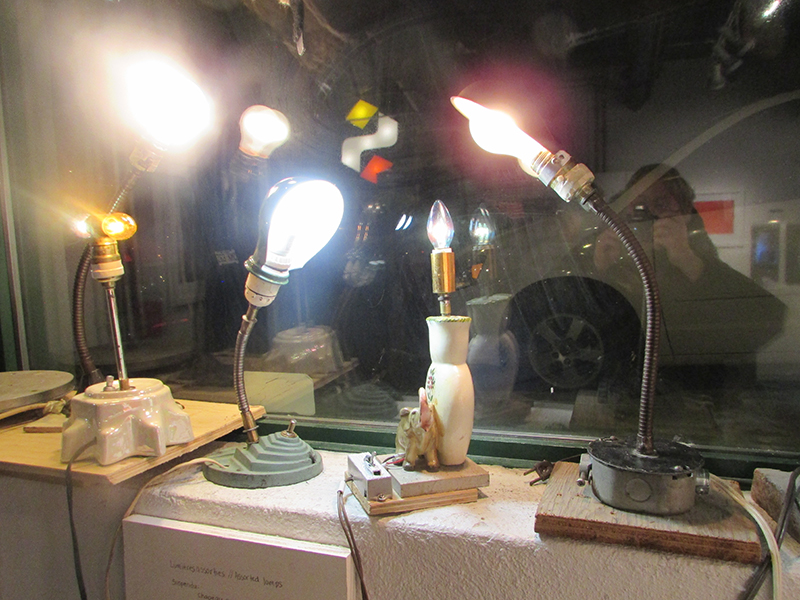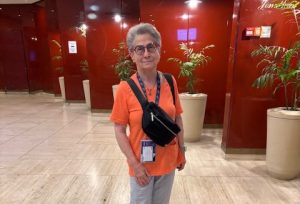Is it a design show, a statement on consumer culture or a chronicle of the refugee experience?
Keep Well, an exhibit that is showing at the Museum of Jewish Montreal until Jan. 20, is all of the above, but mostly it’s one man’s loving tribute to his grandfather.
Keep Well is a fascinating portrait of how one man continues to find purpose, despite a long life of hardship. It was conceived by artist and filmmaker Sean Wainsteim of Toronto.
As he has for many years, his grandfather, Lejb Pilanski, 99, produces utilitarian things out of discarded objects – bits and pieces (scrap, some might say) that he collects. On view is just a small sampling of Pilanski’s creations.
Pilanski continues to work away in the basement of the modest home he bought in Toronto in the 1960s. His table lamps – a particular favourite of his – and other daily housewares not only work, but draw the eye to their sinuous shapes and touch of whimsy.
Who would think of making a dustpan out of an old metal projector case (the instructions on its use still visible) welded to a pot handle?
READ: HOLOCAUST SURVIVOR MAKES ART OUT OF OTHER PEOPLE’S JUNK
Pilanski was a tailor and refurbishing antique sewing machines is a special passion of his. Somehow, he finds the belts and bobbins to keep them humming, including one delightful specimen set on a custom-built table, which is part of the exhibit.
Whether a toaster cover or a boot remover, the Polish-born retired sweatshop worker gives each piece a flair that Waimstein recognized, although his no-nonsense zayde scoffed when he first proposed that his creations should be shared with the public.
Pilanski’s pieces are shown alongside photos and videos of him and his late wife, Ester Pilanski, as well as documents of Pilanski’s journey as a refugee and his unedited handwritten notes, which reveal his quiet pride in his workmanship and inventiveness.
Visitors can even hear Pilanski singing old Russian folksongs through the one-eared “head fons” he made from tossed speakers and elastic waistbands.
Born to a poor family in Grodno, Pilanski worked from the age of 12 (“making ladies’ coats”), until he was conscripted into the Russian army. He spent the war fighting in dreadful conditions. His parents and sisters did not survive. He believes they died when the Nazis burned the town down.
While in a displaced persons camp in Germany, he met his future wife. They were smuggled into France, where their only child, Ginette (Wainsteim’s mother), was born. The family came to Canada in 1950 as refugees.

Wainsteim began the project after his grandmother died in January 2017, following a long decline due to dementia. Pilanski, despite his advanced age, insisted on taking care of her at home, said Wainsteim.
Pilanski was left bereft after 70 years of marriage.
“My grandfather is a man who did everything for everyone else. He never asked anyone to do anything for him. I thought working with him on this would be a way, not only to take his mind off his grief, but to show him that what he was doing is appreciated and that his life matters,” Wainsteim said.
“It was also a way of spending time with him, connecting and hearing stories I hadn’t heard before.”
Pilanski was skeptical at first about the idea of turning his tinkering into art. But after the first iteration of the exhibit in Toronto last year, Pilanski, who’s not a man who shows much emotion, was evidently pleased.
Wainsteim sees a parallel between his grandfather’s displacement and rebuilding of his life, and his dedication to recovering what others throw away and reassembling them into useful, original stuff – or works of art, if you please.
He also hopes that relating his grandfather’s experience will counter the “anti-immigrant and nationalist rhetoric” that is so prevalent today.






